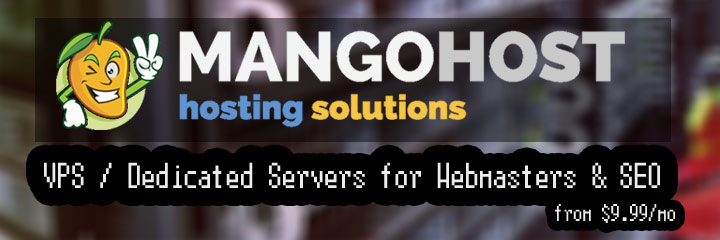
 Get the solution ↓↓↓
Get the solution ↓↓↓
This is how you decrypt a text in javascript encoded with Laravel using AES-256-CBC as the cipher.
CryptoJS 4.0 is used...
// Created using Crypt::encryptString('Hello world.') on Laravel.
// If Crypt::encrypt is used the value is PHP serialized so you'll
// need to "unserialize" it in JS at the end.
var encrypted = 'eyJpdiI6ImRIN3QvRGh5UjhQNVM4Q3lnN21JNFE9PSIsInZhbHVlIjoiYlEvNzQzMnpVZ1dTdG9ETTROdnkyUT09IiwibWFjIjoiM2I4YTg5ZmNhOTgyMzgxYjcyNjY4ZGFkNTc4MDdiZTcyOTIyZjRkY2M5MTM5NTBjMmMyZGMyNTNkMzMwYzY3OCJ9';
// The APP_KEY in .env file. Note that it is base64 encoded binary
var key = 'E2nRP0COW2ohd23+iAW4Xzpk3mFFiPuC8/G2PLPiYDg=';
// Laravel creates a JSON to store iv, value and a mac and base64 encodes it.
// So let's base64 decode the string to get them.
encrypted = atob(encrypted);
encrypted = JSON.parse(encrypted);
console.log('Laravel encryption result', encrypted);
// IV is base64 encoded in Laravel, expected as word array in cryptojs
const iv = CryptoJS.enc.Base64.parse(encrypted.iv);
// Value (chipher text) is also base64 encoded in Laravel, same in cryptojs
const value = encrypted.value;
// Key is base64 encoded in Laravel, word array expected in cryptojs
key = CryptoJS.enc.Base64.parse(key);
// Decrypt the value, providing the IV.
var decrypted = CryptoJS.AES.decrypt(value, key, {
iv: iv
});
// CryptoJS returns a word array which can be
// converted to string like this
decrypted = decrypted.toString(CryptoJS.enc.Utf8);
console.log(decrypted); // Voilà! Prints "Hello world!"
Like @Dusan Malusev already mentioned:
You should not use Laravel APP_KEY in frontend code. NEVER, Laravel uses APP_KEY to encrypt everything including cookies (Session cookie and csrf cookie).
Your application could be hacked if it's in your html code! To answer your question a bit: useCrypt::decrypt($encrypted) on the server side of your application (within Laravel).
Never use your Laravel APP_KEY in frontend. It is a big software vulnerability.
You should create a trait that encrypts and decrypts data before setting and getting data.
To use Laravel Crypt add Encryptable.php
<?PHP
namespace App;
use Illuminate\Support\Facades\Crypt;
trait Encryptable
{
public function getAttribute($key)
{
$value = parent::getAttribute($key);
if (in_array($key, $this->encryptable)) {
$value = Crypt::decrypt($value);
}
return $value;
}
public function setAttribute($key, $value)
{
if (in_array($key, $this->encryptable)) {
$value = Crypt::encrypt($value);
}
return parent::setAttribute($key, $value);
}
}
After that you can use this trait in your models. Add a $encryptable property. Array of columns to be encrypted and decrypted.
class User extends Model
{
use Encryptable;
protected $encryptable = [
'column',
'anotherColumn',
];
}
After that use model as you use before.
I have used in ReactJs
CryptoJS 4.1
let key = process.env.REACT_APP_ENCRYTO_KEY
let encrypted = atob(response.data)
encrypted = JSON.parse(encrypted)
const iv = CryptoJS.enc.Base64.parse(encrypted.iv)
const value = encrypted.value
key = CryptoJS.enc.Base64.parse(key)
let decrypted = CryptoJS.AES.decrypt(value, key, {
iv
})
decrypted = decrypted.toString(CryptoJS.enc.Utf8)
return {
...response,
data: JSON.parse(decrypted)
}
Laravel 8.x usingEncrypter
$encrypter = new Encrypter(Encrypter::generateKey('supported_any_cipher'));
return response($encrypter->encryptString(json_encode($response)), 200);
The supported cipher algorithms and their properties.
['aes-128-cbc' => ['size' => 16, 'aead' => false],
'aes-256-cbc' => ['size' => 32, 'aead' => false],
'aes-128-gcm' => ['size' => 16, 'aead' => true],
'aes-256-gcm' => ['size' => 32, 'aead' => true]]
Our community is visited by hundreds of web development professionals every day. Ask your question and get a quick answer for free.
Find the answer in similar questions on our website.
Do you know the answer to this question? Write a quick response to it. With your help, we will make our community stronger.
PHP (from the English Hypertext Preprocessor - hypertext preprocessor) is a scripting programming language for developing web applications. Supported by most hosting providers, it is one of the most popular tools for creating dynamic websites.
The PHP scripting language has gained wide popularity due to its processing speed, simplicity, cross-platform, functionality and distribution of source codes under its own license.
https://www.php.net/
Laravel is a free open source PHP framework that came out in 2011. Since then, it has been able to become the framework of choice for web developers. One of the main reasons for this is that Laravel makes it easier, faster, and safer to develop complex web applications than any other framework.
https://laravel.com/
JavaScript is a multi-paradigm language that supports event-driven, functional, and mandatory (including object-oriented and prototype-based) programming types. Originally JavaScript was only used on the client side. JavaScript is now still used as a server-side programming language. To summarize, we can say that JavaScript is the language of the Internet.
https://www.javascript.com/
React is currently the leader in JavaScript UI frameworks. First, the Facebook developers started working on this to make their job easier. An app called Facebook Ads grew very quickly, which meant complex management and support. As a result, the team began to create a structure that would help them with efficiency. They had an early prototype before 2011, and two years later, the framework was open source and available to the public. It is currently used by many business giants: AirBNB, PayPal, Netflix, etc.
https://reactjs.org/
HTML (English "hyper text markup language" - hypertext markup language) is a special markup language that is used to create sites on the Internet.
Browsers understand html perfectly and can interpret it in an understandable way. In general, any page on the site is html-code, which the browser translates into a user-friendly form. By the way, the code of any page is available to everyone.
https://www.w3.org/html/

Welcome to the Q&A site for web developers. Here you can ask a question about the problem you are facing and get answers from other experts. We have created a user-friendly interface so that you can quickly and free of charge ask a question about a web programming problem. We also invite other experts to join our community and help other members who ask questions. In addition, you can use our search for questions with a solution.
Ask about the real problem you are facing. Describe in detail what you are doing and what you want to achieve.
Our goal is to create a strong community in which everyone will support each other. If you find a question and know the answer to it, help others with your knowledge.